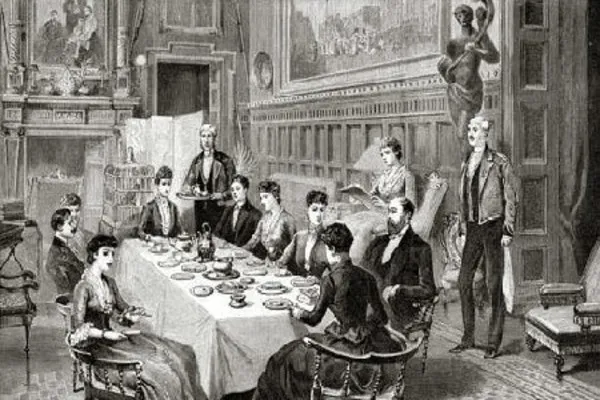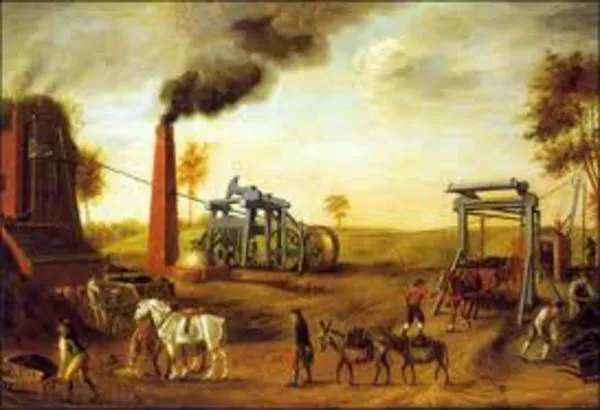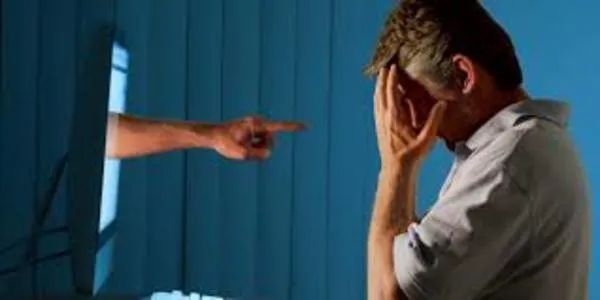The Victorian Era of the 19th century (1837-1901) was a period closely associated with the Industrial Revolution, particularly in the United Kingdom.
The period was also known for its moral policing of personal behaviours. This is what I'd like to focus on in this article through a comparison of the Victorian Era and the contemporary era of the early 21st century.

Tea at Sandringham (Source: angelpig.net)
In the period preceding the Victorian era, there were a number of converging forces that came together to launch the era, but also the Industrial Revolution, with which the Victorian Era is inextricably intertwined. The development of the steam engine and coal-based energy in the late 1700s together with the emergence of the Protestant Work Ethic came together to create the conditions in which an industrial form of capitalism to emerge from the remnants of mercantile capitalism. There were other forces as well such as the Enclosure Movement and the huge migrations of people from the countryside into the cities looking for work in the newly created factories of the era. However, for the purposes of this argument, I would like to concentrate on the effects of the moral strain of Protestantism that emerged along with the Work Ethic and the characteristics of current-day neoliberal capitalism (although there is an argument that we are now moving from this era to one of democratic authoritarianism, but that's an essay fro another day).

(Source: spartacus-educational.com)
Here are the similarities:
Victorian Era (1837-1901)
Protestant Work Ethic and the rise of temperance groups
Self-regulation based on community expectations
Moral judgement of inappropriate behaviours
Marginalisation of deviant groups (the homeless, the poor, the sick, children, homosexuals, and women)
Neoliberal Capitalism (1973-2017)
Protestant Work Ethic and the rise of the alt-right
Expected self-regulation but increasing individualisation is seeing this break down
Moral judgement of all behaviours (partly a result of social media)
Marginalisation of deviant groups (the homeless, the poor, women, refugees, migrants, homosexuals, and people not of the dominant ethnicity)
This brief list has some interesting similarities particularly in relation to moral judgement of people's behaviours.
Today, we see anyone's behaviours/actions/ideas causing outrage on social media which seeps into our mainstream media as well. As a society, we police each other continuously with disapproving looks and comments. If you are a parent trying to persuade your child to do something in public, or a social media user trying to have a civil debate about social issues, or thousands of other examples, it doesn't take long before someone becomes outraged at what you are doing, regardless of what it is.

(Source: huffingtonpost.co.uk)
So, why are we policing every inch of everyone else's lives, expecting them to conform, not to some kind of social standard, but now, conforming to what each individual thinks is right? How is it possible for anyone to conform to everyone's opinions (because this is what they are - just opinions). Ultimately, this leads to further social and community disintegration - perhaps it is just time to butt out of other people's lives and start living our own and actually caring about others. We need a sense of care and community more than ever, so let's just stop being so concerned and obsessed with what other people do.
Such policing behaviour in the Victorian Era led to terrible ostracisation of the aforementioned groups all based on the behaviours that were expected of them - but this was according to a social standard. Indeed, we appear to have entered the 'Second Victorian Era', albeit with the policing of behaviours being based on each individual's opinions about what is acceptable and what is not.